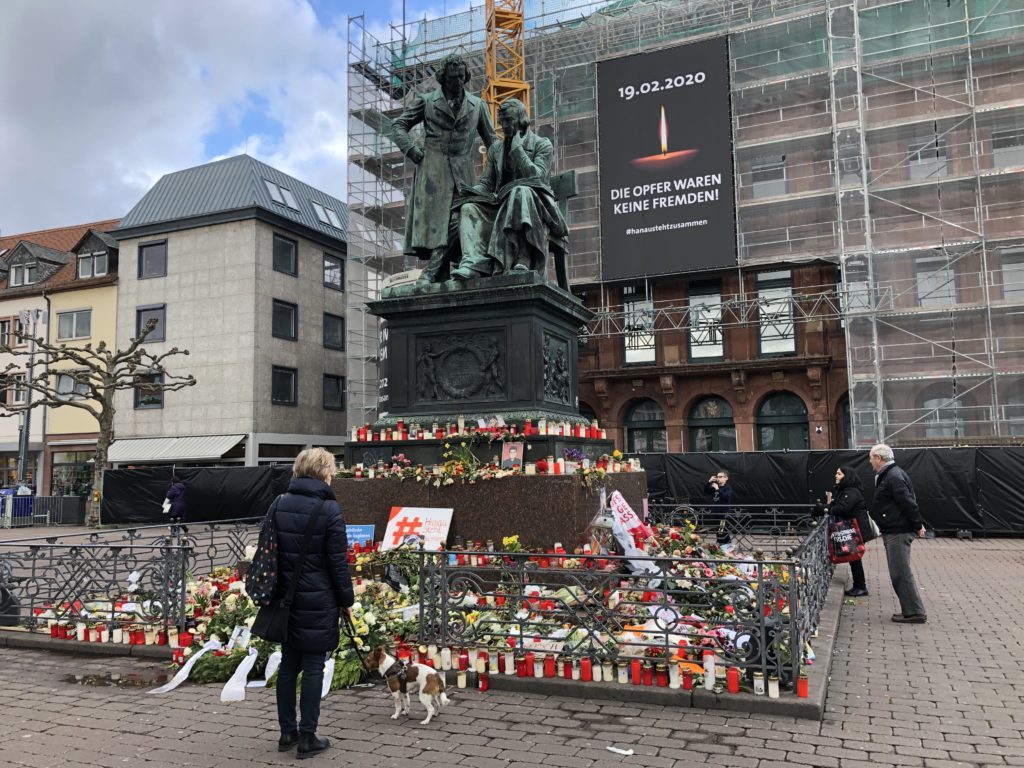“What we experience is that, when something like this happens, people’s desire for reliable information is growing.”

Henrike Wilhelm
Kicker
On the night of Feb. 19, a domestic terrorist attack shook the German city Hanau, situated about 25 kilometres east of Frankfurt (Main). The shooter, a German citizen, entered two hookah pipe bars and shot nine people before killing himself.
Human tragedies are a recurring topic in news coverage worldwide. How news outlets cover them remains a controversial issue.
While covering the attack, German news outlets placed great emphasis on the right words to describe it. A clear distinction between xenophobia and racism was made.
Frank van Bebber is managing and contributing editor for Hessischer Rundfunk (Hesse Broadcasting) or what Germans commonly refer to as hr, a public broadcasting corporation.
“Our colleagues from the social media team decided relatively quickly they’re going to call the attack racist and not xenophobic,” said van Bebber. “Because it is very important, and is very important to the local people here, that these people in Hanau weren’t strangers, but people who were born in Hanau and grew up there and who were Hanau locals,” he said.
The literal German translation for the word used to describe xenophobia means being hostile to strangers.
Sensitivity is also in play when revealing the ethnicity of an attacker. Hr doesn’t mention the nationality of, for example, a bank robber to not place emphasis on it. However, it is usually necessary to reveal it along with other details if the crime attracts a lot of public attention due to its scope.
Van Bebber emphasizes that these decisions have to be made individually and there is no one-size-fits-all approach. For example, regarding whether or not to name victims or attackers.
Sabine Schiffer is a professor for journalism and communications at Hochschule für Medien, Kommunikation und Wirtschaft (University of Applied Sciences for Media, Communications and Economy) in Frankfurt (Main), Germany.
She feels ambivalent towards the performance of German media outlets. She says the distinction between xenophobia and racism in the wake of Hanau was well done overall. Too often, she says, she still sees journalists make mistakes that help the attacker’s narrative.
“I think generally we have a lot of growing and learning to do”.
Schiffer sees lots of room for improvement and cautions journalists not to stop trying to be more responsible when it comes to such stories.
“In my opinion, there’s the general impression that we just have to be more careful with the terms used and then everything’s fine,” she said.

According to Schiffer, the actual issue goes far beyond words. She says the context when someone’s skin colour or ethnicity are mentioned is just as important and needs to be more sophisticated.
Schiffer also criticizes a lacking awareness of the overuse of symbolic pictures. This misuse, she says, can currently be seen when looking at COVID-19-stories, which are disproportionately often accompanied by pictures of Asians.
Heaven Taylor-Wynn is a multimedia reporter at the Poynter Institute for Media Studies. She agrees that journalists should be more cautious when including someone’s ethnicity in a story.
According to Taylor-Wynn, such details don’t help the general conversation in society.
“I think generally we have a lot of growing and learning to do,” she said.
“What we experience is that, when something like this happens, people’s desire for reliable information is growing”.
Taylor-Wynn identifies the need to be first to break the news as another problem. She refers to the misinformation spread by North American media outlets surrounding the death of basketball player Kobe Bryant in January as typical.
“There was so much misinformation surrounding that and details were continuously coming out. With something like that, it can be detrimental to the families of the people who are involved and how they find out is not good if it’s not official,” Taylor-Wynn said.
Accuracy should be the focal point in reporting, she says.
Van Bebber agrees with the old adage: Get it first, but get it right. He says lots of German reporters did a good job being frank about what they could or couldn’t confirm about the Hanau shooting.
According to van Bebber, social media poses a major problem in this regard. He says it leads to the loss of the media’s role as gatekeepers who have information nobody else has. Often, details about the nationality surface online.
“If we don’t say it, nobody will know about it – that’s not how it works anymore,” van Bebber said.
However, van Bebber also sees the positive. He notices that in times of breaking news, people turn to reputable media outlets to get their information.
“What we experience is that, when something like this happens, people’s desire for reliable information is growing.”




Be the first to comment